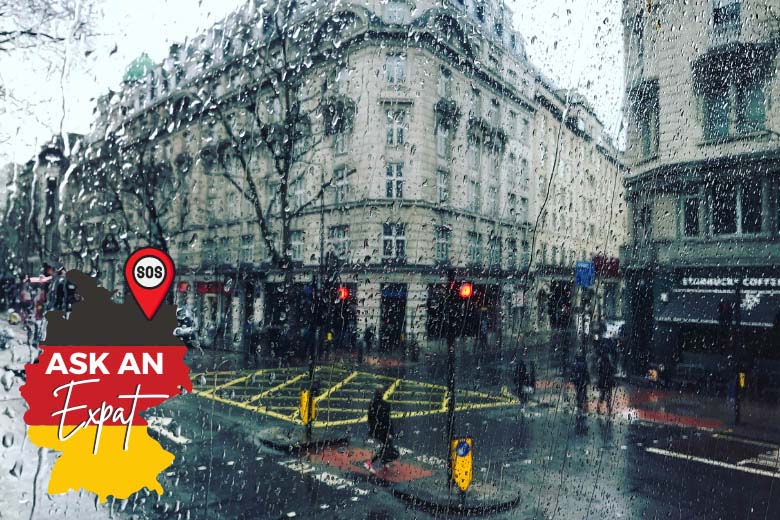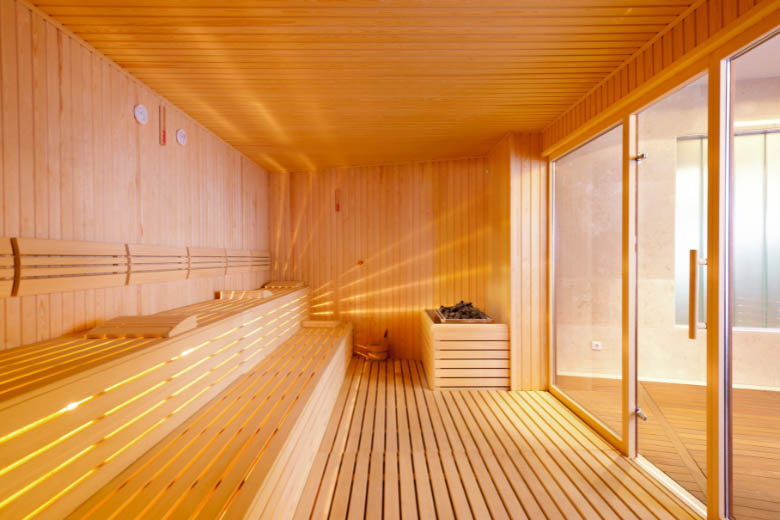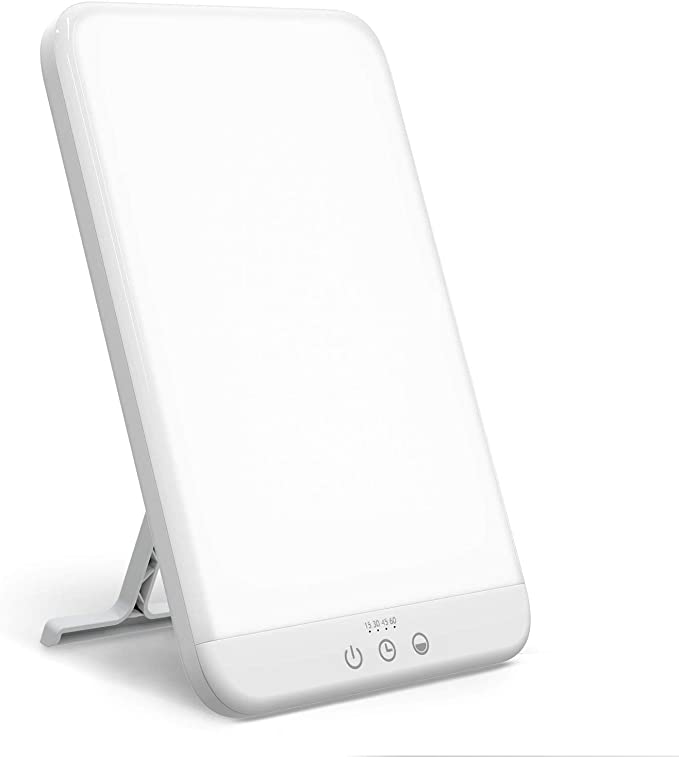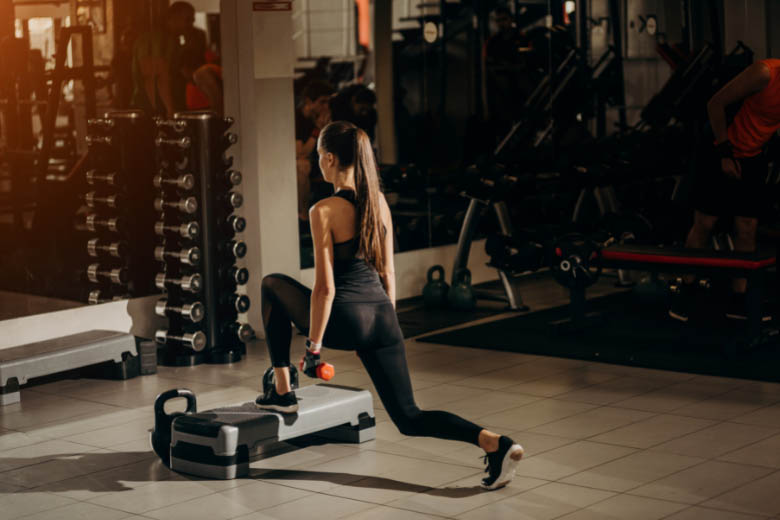
A survival guide for overcoming winter depression in Germany. 12 powerful tips to help you get over the winter blues and feel yourself again.
Feeling constantly tired, unmotivated and depressed? You’re not alone! It’s pretty common to feel that way during the winter months in Germany. Not just for expats from sunnier and warmer climates, but for many locals too.
It’s a breeze getting through November and December when German Christmas Markets are in full swing. It’s January, February, and March that’s the toughest to get through.
Winter depression is REAL! We didn’t feel it that much during the first 2 years of living in Berlin. But by the third year, our vitamin D reserves were used up and we really started to feel it.
So if you’re wondering how people survive during winter in Germany, you’ve come to the right place! We’ve put together this survival guide to help you beat the German winter blues.
What is Winter Depression?
Winter depression is so common that there’s an official medical term for it – seasonal affective disorder (or ‘SAD’ for short). How appropriate?
This seasonal depression happens every year in autumn and winter not from the cold, but rather the lack of sunlight.
Many expats living in Germany experience this. Those of us who come from sunny countries like South America, India, South East Asia, or South Africa (where we’re from) are more prone to getting winter depression.

It happens because the lack of sunlight during winter messes with our body’s internal clock (the circadian rhythm). When it’s dark and gloomy outside, our brains receive a signal to produce melatonin – a hormone that helps us fall asleep.
No wonder you’re always feeling tired and unmotivated. It’s not you – it’s the weather! But don’t worry – it’s not all doom and gloom (excuse the pun).
Here are some easy and practical tips and tricks to get you through the dark, wet, and gloomy winter months in Germany till summer comes around again.
12 Tips to Survive Winter in Germany
Go to the Sauna
We didn’t know why Germans love the sauna so much until now – it’s key to surviving winter!
The benefits of regularly going to the sauna are widely known. It’s a good detox for the body, improves blood circulation, promotes stress relief and relaxation, and also improves sleep. Some research even claims that it’s good for weight loss.
Whether that’s true or not, what we can say is that going to the sauna definitely helps improve our mood and feel rejuvenated again. Something that we all desperately need during those last cold, dark months in Germany!
And the best part? It’s a quick pick-me-up. You’ll feel your winter blues subside after just one session in the sauna.

Luckily there are no shortages of saunas in Germany. We regularly go to the sauna at Holmes Place where we have gym memberships.
We won’t lie – it’s one of the more expensive gyms to go to in Germany. But it’s worth paying for.
All of their gyms have saunas and steam rooms. Some even have a pool. But most importantly, we found that they’re less crowded and cleaner compared to cheaper gyms.
Our favorite Holmes Place in Berlin is the one at Potsdamerplatz. The spa area is incredible! We’d even go as far as to say that it’s comparable to going to a spa in a luxury 5-star hotel.
If you don’t want to commit to a gym membership, you can also go to a sauna at a day spa. Vabali Spa and Liquidrom are the two most popular day spas in Berlin.
Get a Daylight or SAD Lamp
We thought it was a joke when a friend recommended getting a daylight lamp to help us survive winter in Germany. But it turns out it’s a real thing.
A daylight lamp (or light therapy box) is designed to emit light at the same wavelength as sunlight. Only without the harmful UV rays that could cause skin or eye damage.
Some studies show that using a light therapy box can boost your mood and ease symptoms of winter depression. Others say that the research is inconclusive.
But we find it helps. We’ve personally felt a boost in productivity and mood getting more light in our eyes.
Try it for yourself – you should feel a noticeable difference in a couple of days. All you do is sit in front of it first thing in the morning for 15 to 60 minutes each day. You can do it whilst you’re drinking coffee or checking your e-mails.

Daylight lamps cost anywhere between €40 to €100 or more. It’s a relatively cheap investment, especially if you compare it to seeing a psychologist.
All you got to do is make sure you buy one with a minimum of 10,000 lux. We found Amazon to offer the biggest variety of SAD lamps.
Personally, we like this daylight lamp by Beurer. It’s a certified medical therapy lamp that emits light intensity of 10,000 lux. We love its compact size. It can easily fit on most desks and most importantly, it uses energy-saving LED technology.
Get a Sunrise Simulation Lamp
Daylight lamps work well if you work from home. But if you go to the office, then a sunrise simulation lamp is a better choice.
These lamps are designed to mimic the slow increase in light exposure you’d experience at sunrise so that your brain knows it’s time to wake up.
The sun only rises after 7 AM during winter in Germany. So if you find it hard to get out of bed in the morning because it’s still dark outside, this lamp will help.

We like the Artinabs sunrise simulation lamp. It has the most functionality out of all the other lamps we compared it with and it’s pretty affordable too.
We like that you’re able to set 2 alarm settings – one for weekdays and one for the weekend. It has built-in ambient sounds for birds chirping, ocean waves, rainforest, and more, to help you relax and fall asleep at night. During the day, it can also be used to listen to FM radio.
That’s not all! This lamp can emit 7 different colors and has 20 levels of adjustable brightness. So you can easily use it as a mood light or a bedside reading lamp.
You can compare it with other sunrise stimulation lamps if you prefer something simpler.
Exercise at a Gym
Exercise has many health benefits – including surviving the German winter! Of course, you can exercise anywhere. From following a Youtube workout at home, to going for a run in your neighborhood.
But if you’re experiencing a bad case of winter depression, you’ll probably feel unmotivated to do either.
That’s why we like going to the gym. Not only does it give us a reason to leave the apartment. But we also feel more motivated to exercise when we’re working out with other people.

There are many gyms in Germany. There’s McFit, John Reed Fitness, Fitness First, Urban Sports, and Holmes Place, just to name a few. They all have their own pros and cons, as well as different price points.
We go to Holmes Place because they have great sauna and fitness facilities. Whether you like weightlifting or going to group classes – they have it all!
As we mentioned earlier, they’re one of the more expensive gyms in Germany. But your body is your temple after all. So for us, it’s worth the investment.
Bonus Tip: Find out whether Holmes Place is the gym for you with this FREE 1-week pass.
Go for Regular Walks Outside
If you’ve been living in Germany for a while, you’ll know that Germans LOVE going for a walk outside. What’s their secret? Well, it’s an instant (and FREE) mood booster!
Studies have shown that walking outdoors helps our bodies release happy hormones like endorphins and serotonin. Plus, it’s great for getting your daily steps in and some daylight too (no matter how little).
Going for a walk outside is probably the last thing you want to do when you’re feeling depressed. But just give it a try next time you’re feeling the winter blues.
A short 15-minute walk outside is all that’s needed to feel a boost in mood and productivity.
Bonus Tip: Need some outdoor inspiration to help you survive winter in Berlin? Check out our Berlin Outdoor Activities guide for a list of lakes and forests to visit.
Save Me For Later

Spend Time With Animals
Another great tip to survive winter in Germany is to spend time with animals.
Interacting with pets have shown to help decrease levels of cortisol (the stress hormone) and lower blood pressure. Some research even goes as far as to say that spending time with animals can boost mood and reduce feelings of loneliness.
We are not scientists. But we definitely feel an improvement in our overall well-being having a dog at home.
Our dog (Franky) may not pay the rent or contribute to household chores. But he definitely pulls his weight when it comes to giving us unlimited cuddles and unconditional love. Even on the most stressful of days, he manages to bring a smile to our faces and boost our moods.
Being expats ourselves, we understand that it’s not always possible to own a pet in Germany. But that doesn’t mean you can’t spend time with dogs (or cats) unless they’re yours.
Simply offer to petsit or walk a friend or a neighbor’s dog or cat. Many pet owners will appreciate it too so it’s a win-win situation.
If you live in Berlin, we’d recommend going on Facebook Groups like Pet sitting/boarding in Berlin. It’s where we found a neighbor’s dog to walk before we were able to adopt a dog here.

If all else fails, you can always visit a dog park. They’ll be plenty of fur babies to bring a smile to your face.
Related Guide: Want to adopt a dog but don’t know how? Find out how dog adoption in Germany works and what to expect as an expat.
Maintain a Healthy Social Life
Don’t let the cold and dark weather stop you from going out or meeting friends. It’s important to maintain a healthy social life, especially during winter when there are fewer events and things to do.
Having something to look forward to in the evening or on the weekends will give you the mental boost you need to survive the gloomy weather.

Making friends isn’t easy as an adult – let alone being an expat in a foreign country. But it’s not impossible either.
We’ve made a few close friends that we’ve met via expat meets up and Facebook Groups. If we can do it, so can you.
Simply go to any expat group of your choice. Introduce yourself, list a few interests or hobbies you have, and see who is keen to meet up.
Alternatively, search for the activity you want to do along with the German city you’re living in and see what Facebook Groups come up (i.e. Hiking in Berlin).
Find Fun Indoor Activities To Do
Finding fun, indoor activities to do is another great way to survive winter in Germany. And by that, we don’t mean Netflix and chill…
Visit museums, go to the cinema, find new cafes and restaurants to eat at, or go watch a stand-up comedy. And if you want to get moving, go for salsa dancing classes or try a new indoor sport like bouldering, squash, or bowling. The possibilities are endless.

Not only will this give you a reason to leave the apartment, but it’s a great way to meet people and build new friendships.
Take a Vitamin D Supplement
Taking a high-quality vitamin D supplement is another key to surviving winter here. This is especially true if you’re an expat from a sunny country or someone that has darker skin pigmentation.
Michael ticks both those boxes so we make sure that get our required vitamin D intake throughout the year.
If you’ve never taken vitamin D before, make sure to consult with a doctor first. Taking too much vitamin D can be toxic so make sure you don’t overdose.
Make Your Apartment Cosy
We’ve all heard the saying, ‘Home is where the heart is’. Turns out the same can be said for your mind (and mental health) too.
Having a cozy apartment to come back to at the end of a long day can provide some relief from winter depression. And the best part is that these creature comforts don’t have to be expensive.
Simple things like candles, a soft blanket, and fairy lights can quickly improve the ambiance of your home.

We have our fairy lights up throughout the autumn and winter months in Germany regardless of whether it’s Christmas time or not. The warm, twinkly lights in combination with a scented candle always help lift our moods and push the winter darkness away.
Related Guide: Another downside of winter is higher energy costs! But don’t let that get you down. Our German Electricity Costs guide shares 9 easy and practical ways to reduce your electricity bill in Germany.
Dress Right for the German Winter
If it’s your first year living in Germany, you’re probably wondering what to wear in winter.
It gets pretty cold here and temperatures often drop to a few degrees above zero. That’s around 32 Fahrenheit for our US friends. And if you’re really lucky, it may even snow.
Our tips to stay warm during winter in Germany are to dress in layers and to wear a big warm jacket that covers you up to your knees at least. We’d also recommend wearing thermal vests and pants if you get cold easily.
Whatever you do, make sure you wear hats, gloves, scarves, as well as warm and waterproof shoes. If you need extra warmth, get your hats and gloves with a fleece inner lining.
Travel to Sunnier Destinations
We saved our best tip to survive winter in Germany for last – LEAVE! We’re not kidding.
Just like migratory birds would fly to warmer regions during winter, lots of locals here plan a vacation to sunnier regions or countries between January and March.
Not only will this help you get that much-needed dose of vitamin D. But mentally, it’ll give you something to look forward to.
The Sunniest Regions of Germany in Winter
You don’t even have to venture out of Germany to get some sun if you don’t mind the cold. You’ll find brilliant blue skies in the north at any of the coastal towns along the Baltic Sea, like Rugen, Stralsund, and Rostock.
Alternatively, you could head south to the German Alps to towns like Garmisch-Partenkirschen, Oberstdorf, and Berchtesgaden and enjoy a sunny ski vacation.
The Sunniest Regions in Europe in Winter
Of course, there are plenty of warm travel destinations if you want to leave Germany. If you want to remain within the EU, we’d recommend traveling to southern European countries like Italy, Spain, and Greece.
We traveled to Crete Island in Greece, and it’s been one of our most memorable destinations to date! Whether you’re looking for gorgeous beaches, otherworldly hikes, or jaw-dropping waterfalls – Crete has it all!
Check out some of the best beaches in Crete to get a sneak peek.

Other Tropical Destinations To Travel To
And finally, if you’re willing to travel far and wide, the world is your oyster!
If you need some inspiration, check out our travel guides for:
When you’re ready to book flights, accommodation, or transport tickets, head to our Travel Resources page for discounts and special promotions.
Wrapping Things Up
We’ve shared several tips to help you beat winter depression and survive the cold in Germany. There’s no doubt that the winter months are long and tough. But if you try just a few of these tips, you’ll make it through winter unscathed.
We hope you found this survival guide useful. If you want to share some of your personal tips with us, feel free to contact us and we’ll add them to this guide.
Here’s a quick summary of the 12 tips to help you survive winter in Germany:
- Go to the sauna
- Get a daylight lamp or light therapy box
- Get a sunrise simulation lamp
- Exercise at a gym
- Go for regular walks outside
- Spend time with animals
- Maintain a healthy social life
- Find fun indoor activities to do
- Take a vitamin D supplement
- Make your apartment cozy
- Dress right for German winter
- Travel to sunnier destinations




